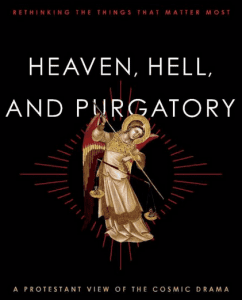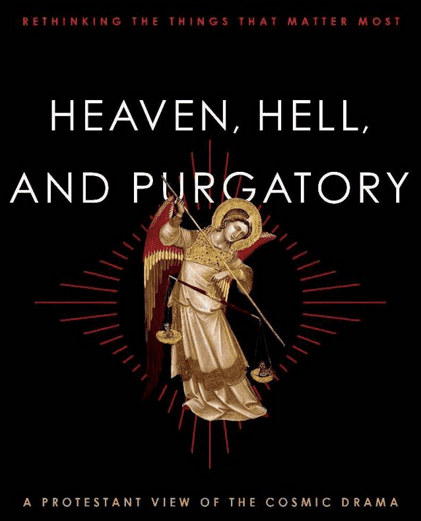 The correlation between birth and death hovers at 1:1. That unalterable ratio leads humans to ponder what happens at and after death. Christian theology teaches that humans have the opportunity to spend eternity in the presence of God, nuances and footnotes unmentioned.
The correlation between birth and death hovers at 1:1. That unalterable ratio leads humans to ponder what happens at and after death. Christian theology teaches that humans have the opportunity to spend eternity in the presence of God, nuances and footnotes unmentioned.
Let us assume that to enjoy the presence of God one must enjoy who God is and what God is like and what conditions obtain in the presence of God. Let us agree that at least one of the features of that kind of existence is holiness, utter purity and devotion to God.
Which raises an age-old question: Do people immediately become holy at death or do they endure a process of postmortem holy-making (sanctification, purgation)? In the history of the church both the Orthodox and (especially) the Catholics think there will be for most people a period of purgation, and where this happens is often called Purgatory. The issue here for Protestants (come back tomorrow) is that Purgatory is not in the NT and what’s not in the Bible is not to be believed as dogma. The issue for theologians is that plenty of theologians and Christians are not Protestants, and that means that scads and scads of Christians believe in Purgatory.
Which leads to this question: When did belief in the Purgatory begin? Jerry Walls, in his fine new book Purgatory, examines this question. If you want the short answer, before we sketch it out, here it is: there are traces of purgation in the Greco-Roman world, in the Bible, but it really got its birth in the legal satisfaction, quantification era of the 12th Century and then was codified in the 13th Century, and flourished into the 19th Century.
You ask where in the Bible? The classic purgation texts are Mal 3:2-3; 2 Macc 12:41-43; Matt 12:31-32; 5:25-26; 1 Cor 3:11-15. You’ll have to look them up or go to the next page to see the texts.
There are traces and hints and evocations of purgatory in The Passion of Perpetua and Felicitas, in Cyprian of Carthage (after life prison where purgation occurs; big for Pope Benedict XVI), Augustine (purgation, prayers for dead, four classes of persons), Gregory the Great, Venerable Bede.
But for Walls, who follows mostly the brilliant work of LeGoff, the birth of purgatory is the 12th Century. Saint Patrick’s Purgatory, Peter Comestor, Gratian … all shaped in a context where moral accounting became quantified, where satisfaction theories were at work in justice systems, auricular confession systems, and the value of pain for moral development. Thus, by the 13th Century it’s official: Albertus Magnus is at the core. Pope Innocent IV, in 1254, defined purgatory; Second Council of Lyons in 1274 got its institutional stamp of approval; Pope Boniface in 1300 and the famous jubilee offer of plenary indulgence, and Dante’s immortal Divine Comedy, which graphically framed purgatory.
Protestants, most famously Luther, with an eye on Tetzel, despised the theory of purgatory at work (though Luther’s focus was abuses). Walls observes that later scholars wonder if secular pedagogy (I would wonder about virtue ethics) was connected to purgatorial ideas.
Mal 3:2 But who can endure the day of his coming? Who can stand when he appears? For he will be like a refiner’s fire or a launderer’s soap. 3 He will sit as a refiner and purifier of silver; he will purify the Levites and refine them like gold and silver. Then the LORD will have men who will bring offerings in righteousness…
2 Macc 12:41Then they all blessed the just judgment of the Lord, who had discovered the things that were hidden.
42And so betaking themselves to prayers, they besought him, that the sin which had been committed might be forgotten. But the most valiant Judas exhorted the people to keep themselves from sin, forasmuch as they saw before their eyes what had happened, because of the sins of those that were slain.
43And making a gathering, he twelve thousand drachms of silver to Jerusalem for sacrifice to be offered for the sins of the dead, thinking well and religiously concerning the resurrection,
Matt 12:31 And so I tell you, every kind of sin and slander can be forgiven, but blasphemy against the Spirit will not be forgiven. 32 Anyone who speaks a word against the Son of Man will be forgiven, but anyone who speaks against the Holy Spirit will not be forgiven, either in this age or in the age to come.
Matt 5:25 “Settle matters quickly with your adversary who is taking you to court. Do it while you are still together on the way, or your adversary may hand you over to the judge, and the judge may hand you over to the officer, and you may be thrown into prison. 26 Truly I tell you, you will not get out until you have paid the last penny.
1 Cor 3:11 For no one can lay any foundation other than the one already laid, which is Jesus Christ.12 If anyone builds on this foundation using gold, silver, costly stones, wood, hay or straw, 13their work will be shown for what it is, because the Day will bring it to light. It will be revealed with fire, and the fire will test the quality of each person’s work. 14 If what has been built survives, the builder will receive a reward. 15 If it is burned up, the builder will suffer loss but yet will be saved—even though only as one escaping through the flames.











